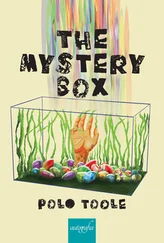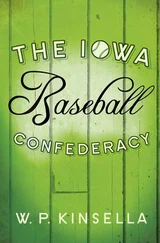John Toole - A Confederacy of Dunces
Здесь есть возможность читать онлайн «John Toole - A Confederacy of Dunces» весь текст электронной книги совершенно бесплатно (целиком полную версию без сокращений). В некоторых случаях можно слушать аудио, скачать через торрент в формате fb2 и присутствует краткое содержание. Год выпуска: 1980, Жанр: Современная проза, на английском языке. Описание произведения, (предисловие) а так же отзывы посетителей доступны на портале библиотеки ЛибКат.
- Название:A Confederacy of Dunces
- Автор:
- Жанр:
- Год:1980
- ISBN:нет данных
- Рейтинг книги:5 / 5. Голосов: 1
-
Избранное:Добавить в избранное
- Отзывы:
-
Ваша оценка:
- 100
- 1
- 2
- 3
- 4
- 5
A Confederacy of Dunces: краткое содержание, описание и аннотация
Предлагаем к чтению аннотацию, описание, краткое содержание или предисловие (зависит от того, что написал сам автор книги «A Confederacy of Dunces»). Если вы не нашли необходимую информацию о книге — напишите в комментариях, мы постараемся отыскать её.
A Confederacy of Dunces — читать онлайн бесплатно полную книгу (весь текст) целиком
Ниже представлен текст книги, разбитый по страницам. Система сохранения места последней прочитанной страницы, позволяет с удобством читать онлайн бесплатно книгу «A Confederacy of Dunces», без необходимости каждый раз заново искать на чём Вы остановились. Поставьте закладку, и сможете в любой момент перейти на страницу, на которой закончили чтение.
Интервал:
Закладка:
“Hey!” he heard Santa Battaglia shout as he silently closed the shutters. Gloating, he opened his looseleaf folder again and picked up his Venus Medalist.
Dear Reader,
A great writer is the friend and benefactor of his readers.
—Macaulay
Another working day is ended, gentle reader. As I told you before, I have succeeded in laying a patina, as it were, over the turbulence and mania of our office. All non-essential activities in the office are slowly being curtailed. At the moment I am busily decorating our throbbing hive of whitecollared bees (three). The analogy of the three bees brings to mind three b’s which describe most aptly my actions as an office worker: banish, benefit, beautify. There are also three b’s which describe most aptly the actions of our buffoon of an office manager: bait, beg, blight, blunder, bore, boss, bother, bungle, burden, buzz. (In this case, I am afraid that the list gets somewhat out of hand.) I have come to the conclusion that our office manager serves no purpose other than one of obfuscation and hindrance. Were it not for him, the other clerical worker (La Dama del Comercio) and I would be quite peaceful and content, attending to our duties in an atmosphere of mutual consideration. I am certain that his dictatorial methods are, in part, responsible for Miss T.’s desire to retire.
I can at last describe to you our factory. This afternoon, feeling fulfilled after having completed the cross (Yes! It is completed and gives our office a needed spiritual dimension.), I set out to visit the clank and whirr and hiss of the factory.
The scene which met my eyes was at once compelling and repelling. The original sweatshop has been preserved for posterity at Levy Pants. If only the Smithsonian Institution, that grab-bag of our nation’s refuse, could somehow vacuum-seal the Levy Pants factory and transport it to the capital of the United States of America, each worker frozen in an attitude of labor, the visitors to that questionable museum would defecate into their garish tourist outfits. It is a scene which combines the worst of Uncle Tom’s Cabin and Fritz Lang’s Metropolis; it is mechanized Negro slavery; it represents the progress which the Negro has made from picking cotton to tailoring it. (Were they in the picking stage of their evolution, they would at least be in the healthful outdoors singing and eating watermelons [as they are, I believe, supposed to do when in groups al fresco].) My intense and deeply felt convictions concerning social injustice were aroused. My valve threw in a hearty response.
(In connection with the watermelons, I must say, lest some professional civil rights organization be offended, that I have never been an observer of American folk customs. I may be wrong. I would imagine that today people grasp for the cotton with one hand while the other hand presses a transistor radio to the sides of their heads so that it can spew bulletins about used cars and Sofstyle Hair Relaxer and Royal Crown Hair Dressing and Gallo wine about their eardrums, a filtered menthol cigarette dangling from their lips and threatening to set the entire cotton field ablaze. Although residing along the Mississippi River [This river is famed in atrocious song and verse; the most prevalent motif is one which attempts to make of the river an ersatz father figure. Actually, the Mississippi River is a treacherous and sinister body of water whose eddies and currents yearly claim many lives. I have never known anyone who would even venture to stick his toe in its polluted brown waters, which seethe with sewage, industrial waste, and deadly insecticides. Even the fish are dying. Therefore, the Mississippi as Father-God-Moses-Daddy-Phallus-Pops is an altogether false motif begun, I would imagine, by that dreary fraud, Mark Twain. This failure to make contact with reality is, however, characteristic of almost all of America’s “art.” Any connection between American art and American nature is purely coincidental, but this is only because the nation as a whole has no contact with reality. That is only one of the reasons why I have always been forced to exist on the fringes of its society, consigned to the Limbo reserved for those who do know reality when they see it.], I have never seen cotton growing and have no desire to do so. The only excursion in my life outside of New Orleans took me through the vortex to the whirlpool of despair: Baton Rouge. In some future installment, a flashback, I shall perhaps recount that pilgrimage through the swamps, a journey into the desert from which I returned broken physically, mentally, and spiritually. New Orleans is, on the other hand, a comfortable metropolis which has a certain apathy and stagnation which I find inoffensive. At least its climate is mild; too, it is here in the Crescent City that I am assured of having a roof over my head and a Dr. Nut in my stomach, although certain sections of North Africa [Tangiers, etc.] have from time to time excited my interest. The voyage by boat, however, would probably enervate me, and I am certainly not perverse enough to attempt air travel even if I were able to afford it. The Greyhound Bus Line is sufficiently menacing to make me accept my status quo. I wish that those Scenicruisers would be discontinued; it would seem to me that their height violates some interstate highway statute regarding clearance in tunnels and so forth. Perhaps one of you, dear readers, with a legal turn of mind can dredge the appropriate clause from memory. Those things really must be removed. Simply knowing that they are hurtling somewhere on this dark night makes me most apprehensive.)
The factory is a large, barn-like structure that houses bolts of fabric, cutting tables, massive sewing machines, and furnaces that provide the steam for pressing. The total effect is rather surreal, especially when one sees Les Africains moving about attending to their tasks in this mechanized setting. The irony involved caught my fancy, I must admit. Something from Joseph Conrad sprang to my mind, although I cannot seem to remember what it was at the time. Perhaps I likened myself to Kurtz in The Heart of Darkness when, far from the trading company offices in Europe, he was faced with the ultimate horror. I do remember imagining myself in a pith helmet and white linen jodhpurs, my face enigmatic behind a veil of mosquito netting.
The furnaces keep the place rather warm and toasty on these chill days, but in the summer I suspect that the workers once again enjoy the climate of their forebears, the tropic heat somewhat magnified by those great coal-burning steam-producing contrivances. I understand that the factory is not working at capacity currently, and I did observe that only one of these devices was operating, burning coal and what looked like one of the cutting tables. Also, I saw only one pair of trousers actually completed during the time that I spent there, although the factory workers were shambling about clutching all sorts of scraps of cloth. One woman, I noticed, was pressing some baby’s clothing and another seemed to be making remarkable progress with the sections of fuchsia satin which she was joining together on one of the large sewing machines. She appeared to be fashioning a rather colorful but nonetheless rakish evening gown. I must say that I admired the efficiency with which she whipped the material back and forth under the massive electric needle. This woman was apparently a skilled worker, and I thought it doubly unfortunate that she was not lending her talents to the creation of a pair of Levy Pants…pants. There was obviously a morale problem in the factory.
I looked for Mr. Palermo, the foreman of the factory, who is, incidentally, normally only a few steps from the bottle, as the many contusions that he has sustained from falling down among the cutting tables and sewing machines can testify, with no success. He was probably quaffing a liquid lunch in one of the many taverns in the vicinity of our organization; there is a bar on every corner in the neighborhood of Levy Pants, an indication that salaries in the area are abysmally low. On particularly desperate blocks there are three or four bars at every intersection.
Читать дальшеИнтервал:
Закладка:
Похожие книги на «A Confederacy of Dunces»
Представляем Вашему вниманию похожие книги на «A Confederacy of Dunces» списком для выбора. Мы отобрали схожую по названию и смыслу литературу в надежде предоставить читателям больше вариантов отыскать новые, интересные, ещё непрочитанные произведения.
Обсуждение, отзывы о книге «A Confederacy of Dunces» и просто собственные мнения читателей. Оставьте ваши комментарии, напишите, что Вы думаете о произведении, его смысле или главных героях. Укажите что конкретно понравилось, а что нет, и почему Вы так считаете.











